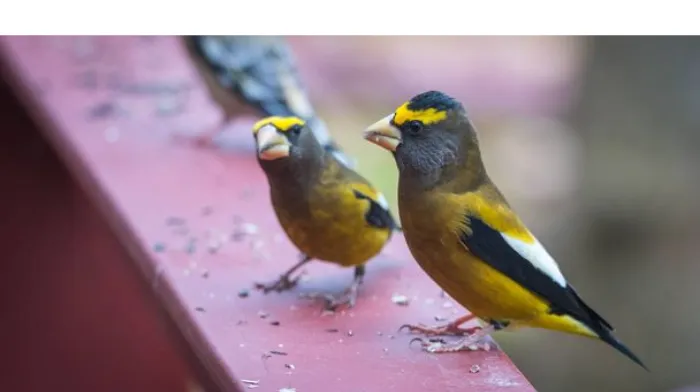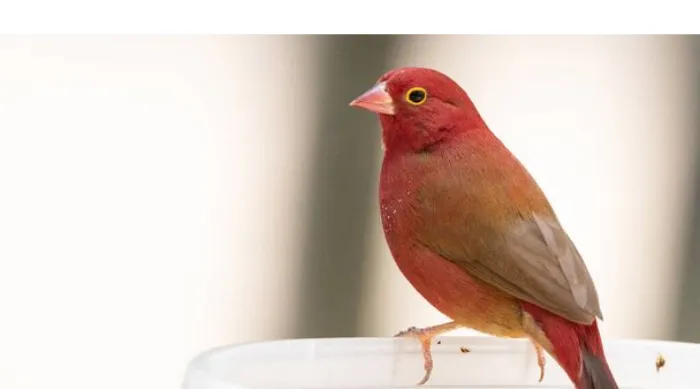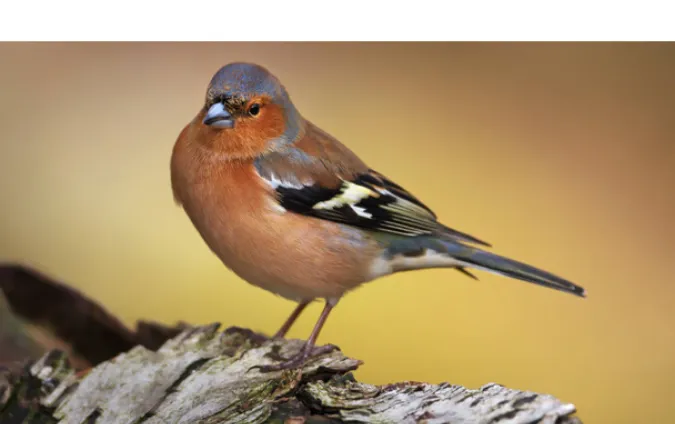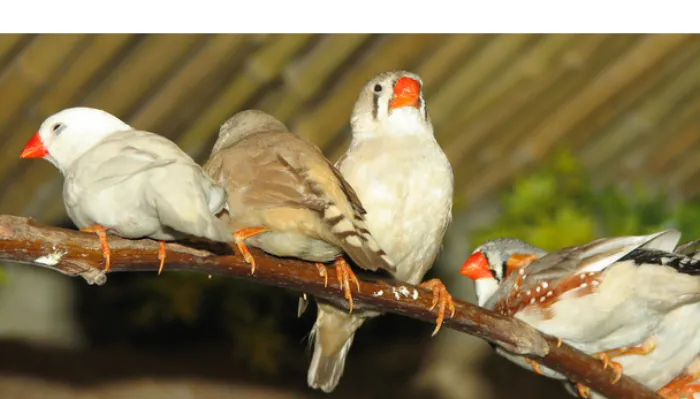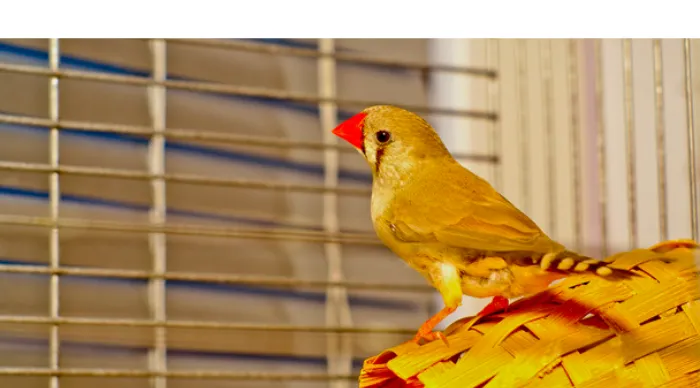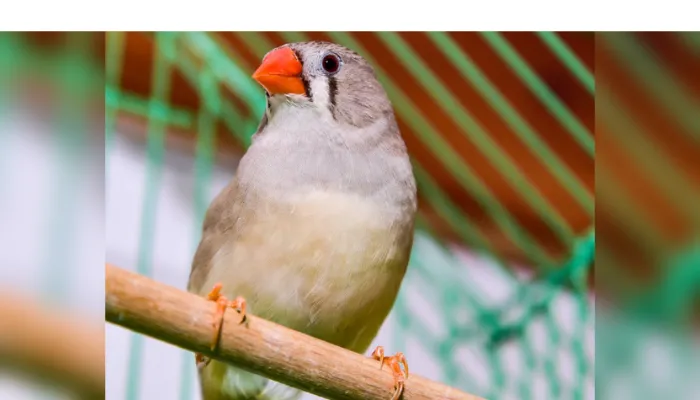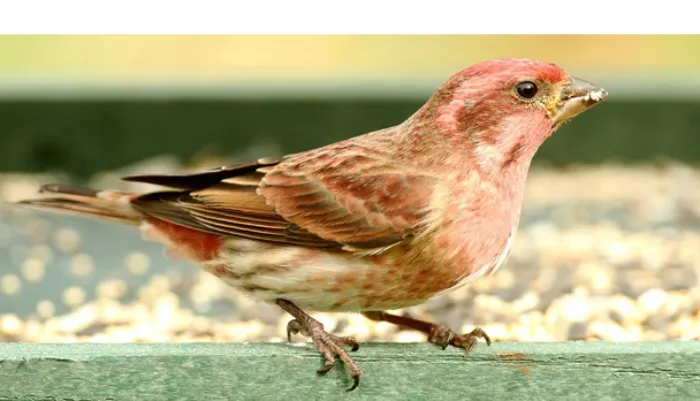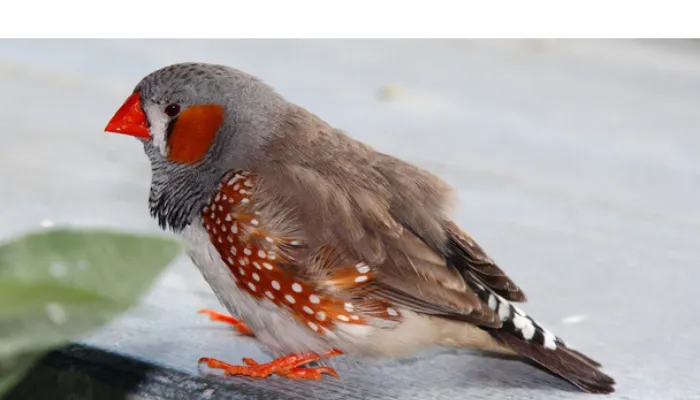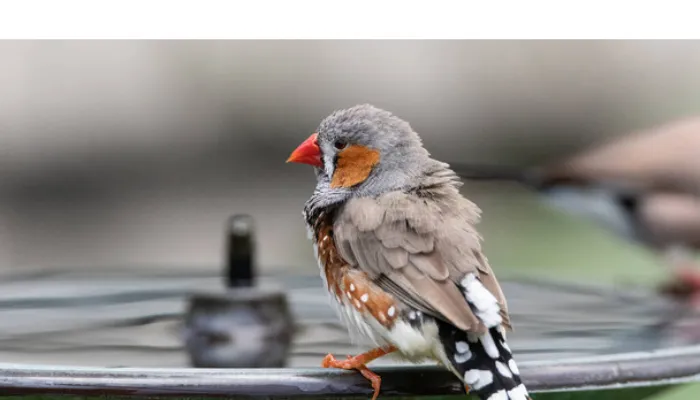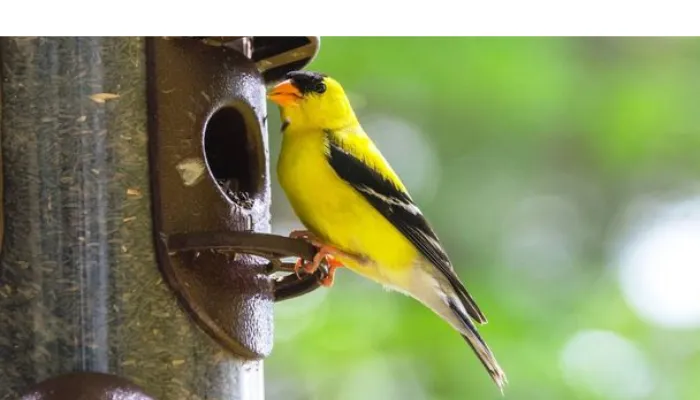Finches are charming little birds that can add a touch of elegance and song to any home. Their vibrant colors and active behavior make them a favorite among bird lovers.
But are they the right pet for you? Understanding your needs and expectations is key to deciding on adopting a finch as a pet.
Are finches good pets?
Certainly! With their relatively low maintenance and beautiful songs, they can be a delightful addition. However, like any pet, they have their own needs and preferences. Understanding these is essential to create a happy environment for them.
Pros of Owning a Finch (9 Total)
Owning a finch can be a delightful experience for many pet owners. Here’s a look at some of the major advantages:
- Low Maintenance: Unlike some other pets, finches don’t need constant attention or special toys. A clean cage, fresh food, and water are typically all they need.
- Beautiful Songs: The soothing melodies of a finch can fill your home with music. Their natural ability to sing is one of the most loved features about them.
- Small Size: Their compact size makes them suitable for smaller living spaces, requiring less space than other pets.
- Affordable Cost: The average cost of owning a finch can be less expensive in comparison to other pets, with prices generally in USD.
- Attractive Appearance: With various beautiful species, finches add visual appeal to your home.
- Longevity: These birds often have a longer lifespan than some pets, ranging from 5-10 years.
- Independent Nature: If you have a busy schedule, their independence might suit you well. They don’t require constant human interaction.
- Educational: Great for teaching children about responsibility and care for living beings.
- Health Benefits: Watching and listening to finches has been known to reduce stress and promote relaxation.
Are finches high maintenance?
Not at all! One of the pros of owning a finch is their relatively low maintenance, making them suitable for those who are new to pet ownership or have a busy lifestyle.
The pros of owning a finch as a pet demonstrate that they can be a joyful addition to any household, with their unique characteristics offering both beauty and companionship.
But, like any decision, there are also some cons to consider, which we’ll explore in the next section.
Cons of Owning a Finch (8 Total)
While finches have numerous benefits, they also come with certain challenges that prospective owners should be aware of. Let’s dive into some of the cons of having a finch as a pet:
- Noise Level: While their songs are beautiful, they can be loud, particularly during mating season. This might not be suitable for everyone.
- Social Needs: Finches are social birds and often require the companionship of other finches. Owning just one might lead to loneliness and stress for the bird.
- Dietary Restrictions: They have specialized diet requirements that need to be carefully met.
- Sensitive to Environment: Temperature must be regulated, staying between 65°F – 75°F (or 18°C – 24°C), which may require additional equipment.
- Health Care Needs: Regular check-ups with a specialized vet are essential, which can add to the cost.
- Limited Interaction: Unlike other pets, they might not be as interactive. A finch might not be the right choice if you’re looking for a pet to cuddle.
- Cage Cleaning: Regular cleaning is necessary and might be more frequent than expected.
- Breeding Challenges: If you have both male and female finches, unexpected breeding can occur, leading to more birds than you planned for.
Do finches make a mess?
Yes. Regular cage cleaning is needed; they can scatter seed outside their cages. It’s a small mess, but it is something to consider if cleanliness is your top priority.
What is the friendliest finch as a pet?
While personality can vary, Zebra finches are often considered one of the more friendly and social species.
Understanding both the pros and cons of owning a finch can help you decide if they’re the right pet for you. Next, we’ll explore how to choose the best finch for your unique needs and lifestyle.
How to Choose the Right Finch for You
So, you’ve weighed the pros and cons and decided that a finch might be the right pet for you. Now, what? Picking the perfect finch requires a bit of thought and consideration.
Here’s a guide to help you:
- Understand Your Needs: Are you looking for a more interactive or independent finch? Understanding your preferences will guide your choice.
- Research Species: Different species have varying care needs and personalities. Zebra finches are known for being friendly, while Gouldian finches are admired for their stunning colors.
- Consider Your Living Space: Make sure you have enough space for a cage and that the environment can be kept at the right temperature (between 65°F – 75°F or 18°C – 24°C).
- Plan for Companionship: Since finches are social, keeping them in pairs or small groups is often recommended. Plan for the space and care needs accordingly.
- Think About Long-Term Care: Consider the lifespan of the finch and ensure you’re ready for a commitment that could last up to 10 years.
- Find a Reputable Source: Purchase or adopt from a reputable breeder or rescue organization to ensure a healthy pet.
What is the friendliest finch as a pet?
Zebra finches are often considered friendly and might be a good choice for those new to bird ownership.
Picking the right finch can be an exciting and rewarding experience. By considering these factors, you’re well on your way to finding a feathery friend that fits perfectly into your life.
What to Expect in the First Month of Finch Ownership
Congratulations! You’ve chosen your finch, and now it’s time to bring your new friend home. The first month of owning a finch can be a thrilling yet busy time.
Here’s what to expect:
- Initial Costs (average cost in USD): Expect to invest in a cage, food, toys, and perhaps even a temperature regulator. The initial cost may vary depending on the species and quality of the products.
- Setting Up the Cage: Select a spot free from drafts and direct sunlight. The cage should be spacious and include perches, food dishes, and toys.
- Feeding: Learn the dietary needs of your specific finch species. This might include a blend of seeds, fresh vegetables, and perhaps even insects.
- Care Tips:
- Temperature Regulation: Keep the environment at a comfortable 65°F – 75°F (18°C – 24°C).
- Daily Check-ins: Observe your finch to ensure it’s healthy and adapting well.
- Regular Cleaning: Clean the cage regularly to maintain hygiene.
- Understanding Their Behavior: Each finch has unique behaviors. Learn to recognize what’s normal and what might indicate a problem.
- Building Trust: Finches are not usually hands-on pets, so spending time near the cage and talking softly can help build trust.
Are finches high maintenance?
Although they’re considered low maintenance compared to some other pets, the first month can require some effort to get everything set up and learn about your finch’s unique needs.
The first month of finch ownership is filled with discovery and excitement as you get to know your new pet. By understanding what to expect and being prepared, you’ll create a smooth transition for both you and your finch.
Curious about common questions new finch owners often have? Prompt me with “[next]” to dive into the Frequently Asked Questions (FAQ) section!
Frequently Asked Questions (FAQ)
The world of finch ownership can be filled with many questions, especially if you’re new to these delightful birds. Here are some common questions and quick answers to help you on your journey:
Q1. Are finches good pets?
Absolutely! With their beautiful songs and striking appearance, finches make wonderful pets for those who appreciate birds. However, they might not be suitable for those seeking a hands-on pet.
Q2. How long do finches live?
Typically, finches live for 5-10 years, depending on species and care.
Q3. What should I feed my finch?
A balanced diet includes a seed mix designed for finches, fresh vegetables, and occasional treats like mealworms.
Q4. Do finches need a companion?
Yes, most finches thrive with the company of other finches, so consider keeping them in pairs or small groups.
Q5. Can finches be kept with other birds?
It depends on the species, but generally, finches should be kept with other finches to avoid potential conflicts.
Q6. Are finches high maintenance?
Not really. They require regular care like feeding and cleaning, but they don’t need as much attention as some other pets.
Q7. Do finches make a mess?
They can scatter seeds outside their cages, so regular cleaning is needed.
Q8. What is the friendliest finch as a pet?
Many bird lovers recommend Zebra finches as a sociable and friendly choice.
Conclusion
Owning a finch is an adventure filled with melody, color, and companionship. Whether you’re drawn to their beautiful songs or their vibrant plumage, finches offer a unique pet experience. But, like any journey, it’s important to be prepared.
From understanding the pros and cons to choosing the right finch for your lifestyle, and knowing what to expect in the first month, this guide has aimed to equip you with the essential knowledge to embark on this feathered adventure.
Remember the initial investment, the need for companionship among finches, and the ongoing care these charming birds require.
They might not be the right pet for everyone, but finches can be a rewarding addition to the home for those who appreciate their quirks and qualities.
Remember, each finch is unique, and their journey is filled with discovery, joy, and sometimes challenges. But the song of a finch can fill a home with warmth, making the journey well worth it.

